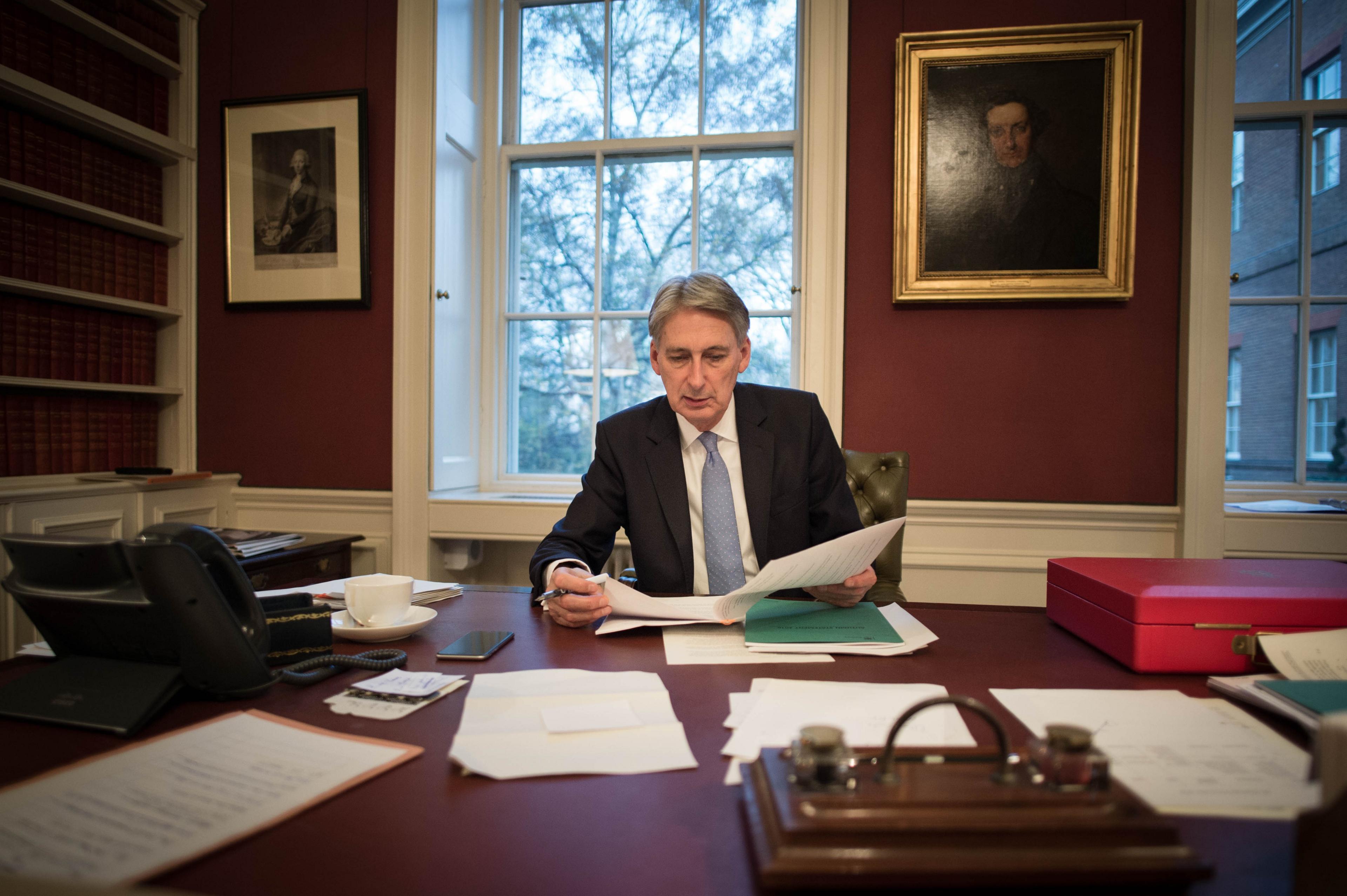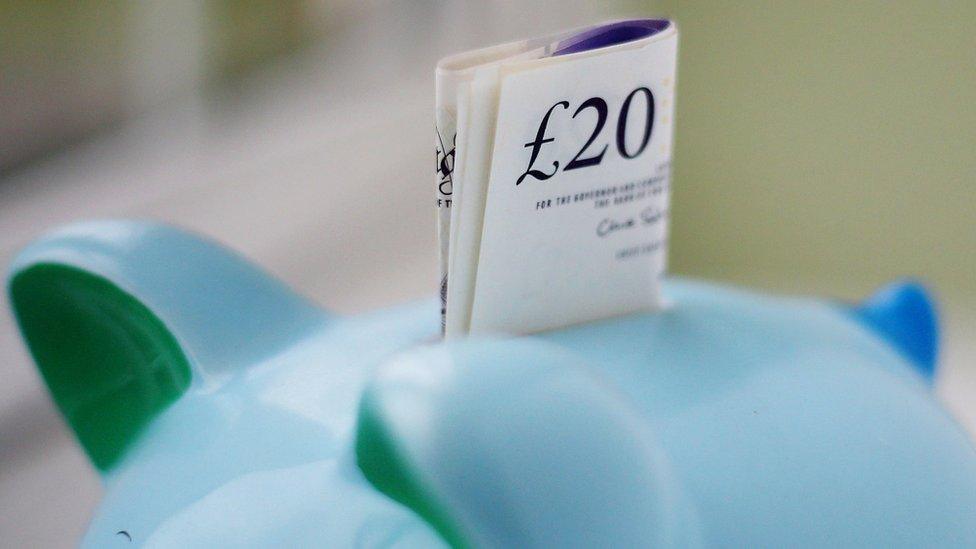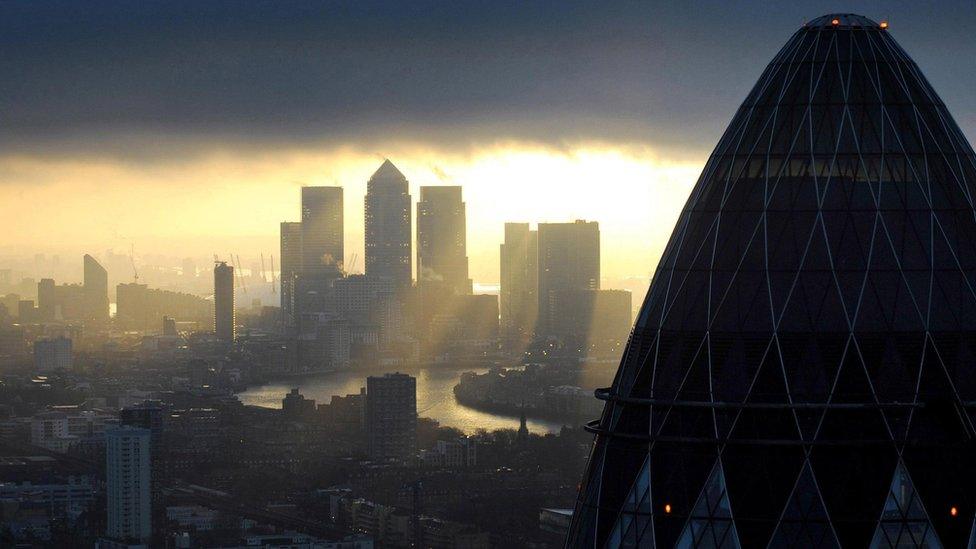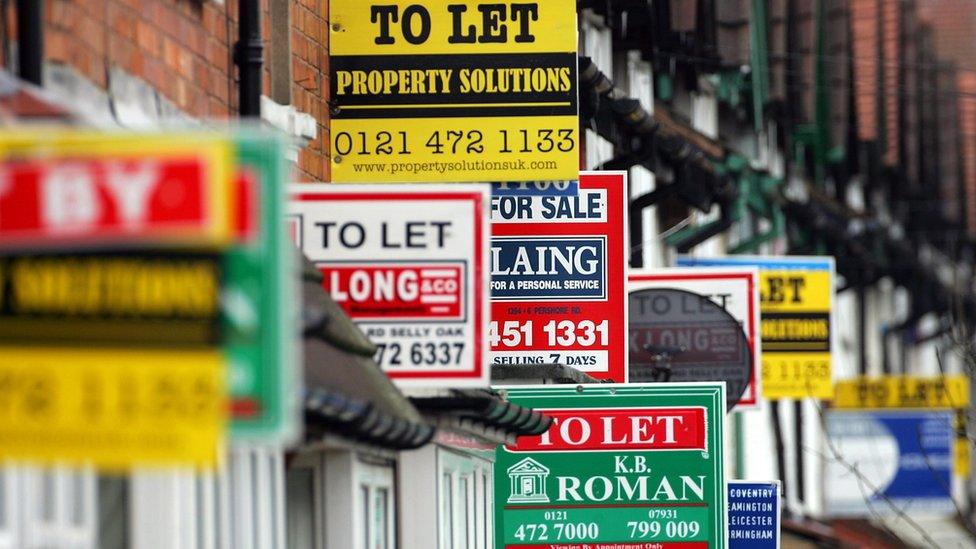Autumn Statement: Your questions answered
- Published

You sent us your questions on the Autumn Statement. Below we answer some of the most common:

Is this saying we, as a nation, will be £122bn worse off because of Brexit?
Not quite. The figure of £122bn is from the Office of Budget Responsibility, which checks all the government's figures.
In essence it has calculated that the economy will grow more slowly in the next few years, to the end of the current Parliament. Tax revenues will not be as strong as previously forecast, but only just half of that, about £59bn, is attributed directly to the aftermath of the Brexit vote. The rest is due to things like changed government policy decisions. But the OBR reckons the government will have to borrow £122bn more than it expected over that time.

Are the savings made from austerity cuts being used to shrink the deficit or help pay for tax cuts?
A bit of both. The chancellor has a juggling act to perform with the government finances: how to balance spending with income.
Spending less (or at least restraining its growth) gives him scope to cut taxes for some people (such as raising the annual allowance) or to reduce the Budget deficit (the gap between his spending and his tax receipts).
As you may have noticed, reducing that annual Budget deficit was something of an obsession for the last Chancellor, George Osborne, and it was his primary justification for his austerity policies.
Now, Philip Hammond, has deferred that ambition, pushing the target of having a balanced Budget over the horizon into the next Parliament.


Who are we actually borrowing from? And who are we in such massive debt to?
The national debt (as we used to call it) stands at £1.6 trillion
It has risen rapidly since the great banking crisis of 2007-08 and the subsequent recession. This huge sum consists mainly of money borrowed in the past by the government to cover the gaps between its annual spending (as detailed in each annual Budget) and the money it receives from taxation.
The extra cash is typically raised by the government selling bonds, which are glorified IOUs. These are usually bought by professional investors around the world who like the guaranteed interest they receive plus the promise of getting their money back when the bond matures.
At the moment, the Bank of England actually owns about a third of all the UK government bonds in issue, as for several years it has been buying them from investors under its policy quantitative easing.

When will the letting fees ban come into force?
Chancellor Hammond revealed no details of his plan, but his tone suggested an outright ban on up-front fees paid by tenants to letting agents. The government's formal Autumn Statement document says only that the government will now consult on what the new law should look like. So there will be plenty of scope for lobbying and campaigning by interested parties. But there are no details or timetable yet.

Are sub-letting fees included - as the owner of a leasehold property which is let out, I am forced to pay over £100 to register new tenants?
We do not know yet. The whole idea of abolishing letting agents' fees will now be the subject of consultation. There has been no detail at all from the government.


What are the chancellors' plans for resolving the banking crisis?
The chancellor did not address these issues in his speech, apart from blaming the last recession on the last Labour government. The Autumn Statement document merely restates the plan to (eventually) sell the government stakes in RBS and Lloyds.
If it is of any consolation, £102m of fines on banks will be given over the next four years to armed forces and emergency services charities and "other related good causes".

Is there anything for first-time buyers?
The chancellor did not directly address first-time buyers (FTBs). But in theory the plan to provide another 40,000 "affordable" homes in the next five years should benefit FTBs.
The money underpinning this should go, in part, to help fund shared-ownership schemes, in which tenants' bills are divided between rent and mortgage payments. And also to fund the "rent to buy" scheme, under which tenants pay a reduced rent while they save for a deposit and can put it down as a deposit after five years.

Will the state pension go up?
The chancellor says that he will keep, for the time being, the "triple lock" policy. That guarantees that the state pension goes up by the greater of: the growth in average earnings; the growth of CPI inflation; or 2.5%. So no change.

Does the increased personal allowance apply to pensioners?
Yes, it certainly does. Pensioners pay income tax like everyone else, on their pension income, earnings (if any), interest from savings and dividends from investments. And they get the benefit of the personal tax allowance too.

Will this investment in "40,000 new affordable homes" be spread fairly and evenly across England?
That will depend on which councils, housing associations and builders bid for the government's funds to pay for their plans.


Any mention of tax measures on landlords' buy-to-let mortgage interest?
No, the plans in the pipeline were not addressed. So you can assume the previously announced changes will come into effect. From April 2017, but phased in over four years, the traditional tax relief available to landlords, on their mortgage interest payments, will be reduced to just the basic income tax rate of 20%.

What are the details re changes to flat-rate VAT scheme?
The government says it will bring in "a new 16.5% rate from 1 April 2017 for businesses with limited costs, such as many labour-only businesses. This will help level the playing field, while maintaining the accounting simplification for the small businesses that use the scheme as intended."
For those businesses affected, this will mean paying more. The government forecasts that this will bring in more than £100m a year extra, for the five years from 2017-18. The details are here., external

What are the benefit rates for 2017-18?
The current rates for 2016-17 are all set out here, external and in this Department for Work and Pensions leaflet., external
New rates have not yet been published. However you may recall that back in 2015, the then Chancellor George Osborne announced a freeze on some benefits to last for four years, from April 2016.
Specifically, he said that working-age benefits would be frozen - including tax credits and local housing allowance, but maternity pay and disability benefits would be exempted. So, some of your benefits may not rise next year.


With childcare, does that mean everyone will be entitled to 30 hours help from 2017 September?
Not quite. If you have young children who need child care, the government is trying to make making good its 2015 election promise.
Today the government said: "Tax-Free Childcare will be introduced gradually from early 2017, with roll out beginning upon completion of the trial. Once the scheme is fully rolled out, the government will review its operation to ensure it is delivering as intended and to assess the benefit it is delivering for working parents." So it will start next year.
Remember, though, the government announced in the 2015 Autumn Spending Review that the new policy would not benefit families earning more than £100,000 a year.
In July this year, HM Revenue & Customs published this guidance, external which said that "All eligible parents will be able to join the scheme by the end of 2017."
So the end of next year is the official target for a full roll-out of the scheme.

What happened to a possible change in Air Passenger Duty?
The airport industry lobbied for the duty to be cut in half. It looks as if they were resoundingly ignored.

Is there anything in it for savers? It always seems to be about keeping interest rates low these days.
Actually, yes. National Savings & Investments (the Premium Bond people) will soon offer a three-year savings bond offering (probably) interest of 2.2%. The bond will have a minimum investment limit of £100 and a maximum limit of £3,000. It will be available for 12 months from next spring.

Does this mean I'll be taxed on my company mobile phone in future?
There are complicated rules for the taxation (or not) of mobile phones supplied to staff by employers. You can enjoy them here: https://www.gov.uk/expenses-and-benefits-mobile-phones/overview, external
These are not being changed and cover most cases where someone is supplied with just one phone by their employer.
What the government is changing are the rules where benefits-in-kind (such as an extra mobile phone) are supplied under a deal known as "salary sacrifice".
If the phone is supplied under one of these - perhaps to another member of your family - you will have to pay tax on it in the future.
The government says: "The tax and employer national insurance advantages of salary sacrifice schemes will be removed from April 2017, except for arrangements relating to pensions (including advice), childcare, Cycle to Work and ultra-low emission cars."
"This will mean that employees swapping salary for benefits will pay the same tax as the vast majority of individuals who buy them out of their post-tax income. Arrangements in place before April 2017 will be protected until April 2018."